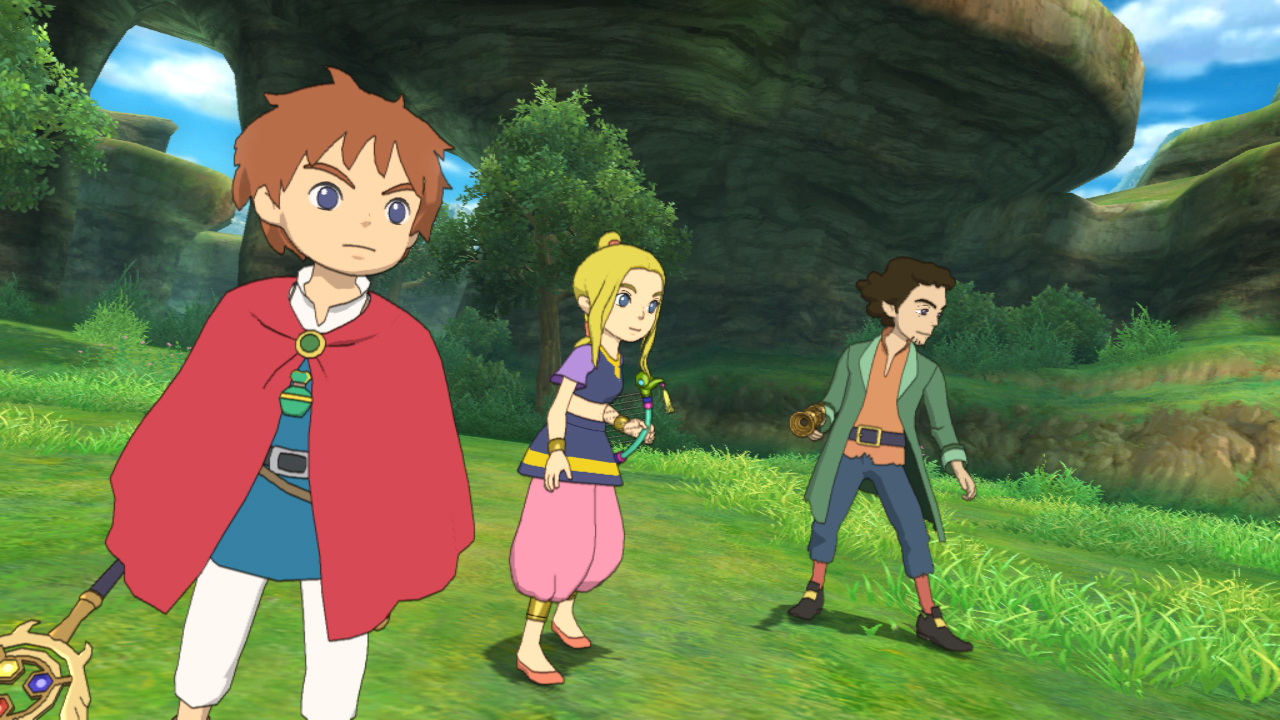Brennan Bova | Fulcrum Staff
FOR THE LAST few days, I’ve been playing the game Ni No Kuni: Wrath of the White Witch and it’s hard for me not to fall in love with it. The game is a PlayStation 3 exclusive—sorry, Microsoft and Nintendo folk.
It’s been a long time since I’ve been drawn into a game the same way I have been by Ni No Kuni. The art was enough to make me throw money at a game store cashier and run away gleefully, but there’s so much more that keeps me coming back. Ni No Kuni is one of a handful of games that I really think anyone could enjoy. I’d recommend it to a 30-year-old and an eight-year-old alike. In just a few hours, the characters and world of this game have become things I care about. In the same way I’d keep reading a good book—how’s Harry Potter going to get out of this jam?—I can’t put Ni No Kuni down.
Every single element plays together beautifully to make me feel something. I find myself reaching into my closet of emotions and dusting off feelings that have not been roused by a video game for a long time. As I travel across the magical world—I’ve got to save it!—the sweeping musical score makes the journey seem epic and important. I feel like what I’m doing matters. When I enter a town, the unique characters and scenery make me believe that it could be a real town with characters milling about, having conversations, and setting about their own goals for the day. As much as I care about the game’s main characters, I find myself caring about the game’s arbitrary side characters as well, if only in passing.
The gameplay itself is crafted by Level-5—a studio with many hits and a few unfortunate misses—and they have struck gold with this game’s formula. Ni No Kuni is not just the product of Level-5 though; the most intriguing thing about it to me—I waited anxiously for it for a year—is that the art, the characters, the soundtrack, and the story itself were all made or influenced by Studio Ghibli.
If the name Ghibli doesn’t mean anything to you, you might have heard of Hayao Miyazaki and his films Spirited Away, My Neighbour Totoro and Howl’s Moving Castle. Miyazaki is one of the founders of Studio Ghibli, and his iconic style is evident in this game.
One of the central points of the game is mending people’s hearts that have been damaged by an evil wizard. There are a few main points in the game where this is absolutely necessary, but there are hundreds more where if I really didn’t want to, I could easily march on by an arguing couple or a man who has become too lazy to do much of anything. In real life, I’d certainly ignore them—callous, embittered bastard that I am—but when I play Ni No Kuni, I almost feel like the main character’s endearing kindness might be rubbing off on me just a little bit.
Today I found a fisherman who, after years of working on the ocean, suddenly found himself too afraid to even go down to the docks. I knew if I helped him he’d give me a few bucks and maybe an item, but I was hardly starving for cash (I’m rolling in Ni No Kuni dough, ladies). Instead, I wanted to help him simply to help him out. This resulted in me scouring the small coastal village for someone who, unlike the fisherman, was so brave they had courage to spare. This came not in the form of a mighty warrior or anything like that, but instead in a little boy who had scraped his knee and refused to cry about it. That’s adorable and it makes perfect sense. I’ve only recently become brave enough to get vaccinated without crying, and I can remember trying to play it tough when I was little and not cry as a cut got splashed with peroxide and had a bandage slapped on it.
Little things like that are what make the game so real. I care about more than the main character and his own goals. Oliver, the intrepid hero, isn’t really in it for all that much. He’s in it for other people because he likes helping people. Instilling in me that same desire to help people makes the entire world more important, and that much more worth saving. Caring about the game’s entire world and everyone in it makes achieving the ultimate, clichéd, world-saving goal that much more desirable. I want this fictional world to have longevity, and I want its made-up digital citizens to survive. And that’s pretty cool.
It is more than a quest for virtual glory. In Ni No Kuni, I don’t care if the game ends and only a handful of people know about Oliver and everything he did for them. I just care about succeeding for the sake of others. I’m trying to help people—even if they aren’t real.
This feeling of benevolence probably won’t last—in February I expect to be joyously cutting people into tiny pieces in Metal Gear Rising—but for now, I feel really good, not just satisfied, and that is a rare thing to pull from a game. All I want to do is help people, not blow them up or tear them limb from limb. It’s perhaps sadly unique, but that one standout factor is what makes Ni No Kuni beautiful.





